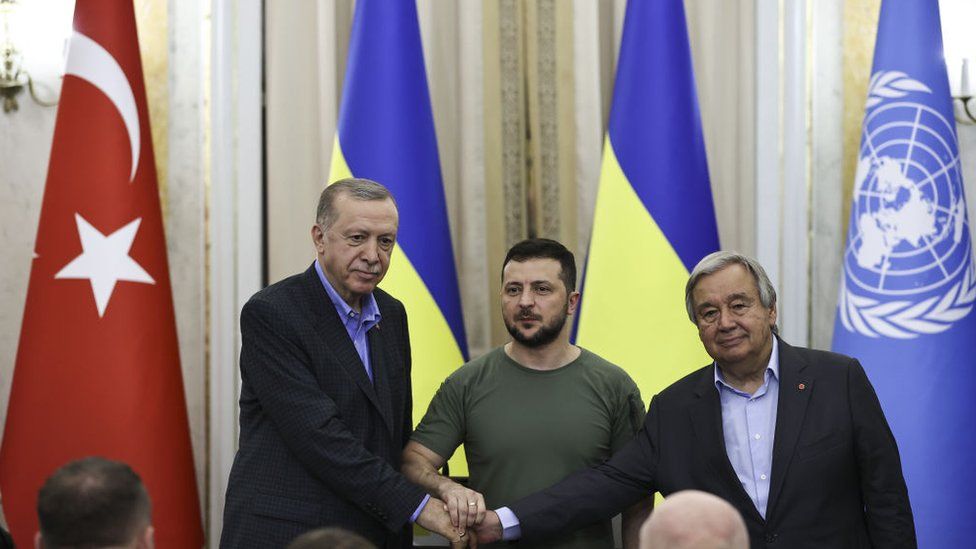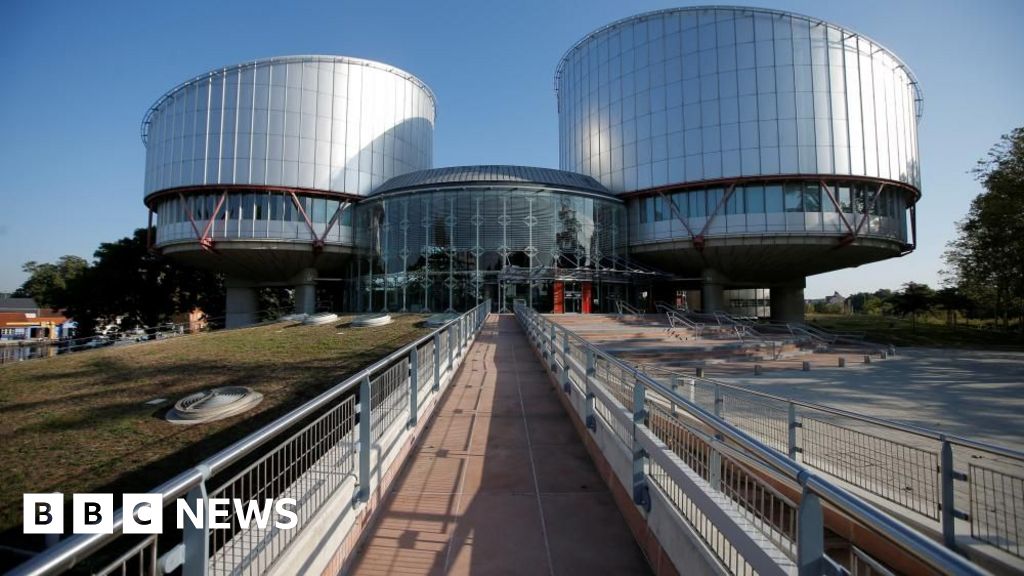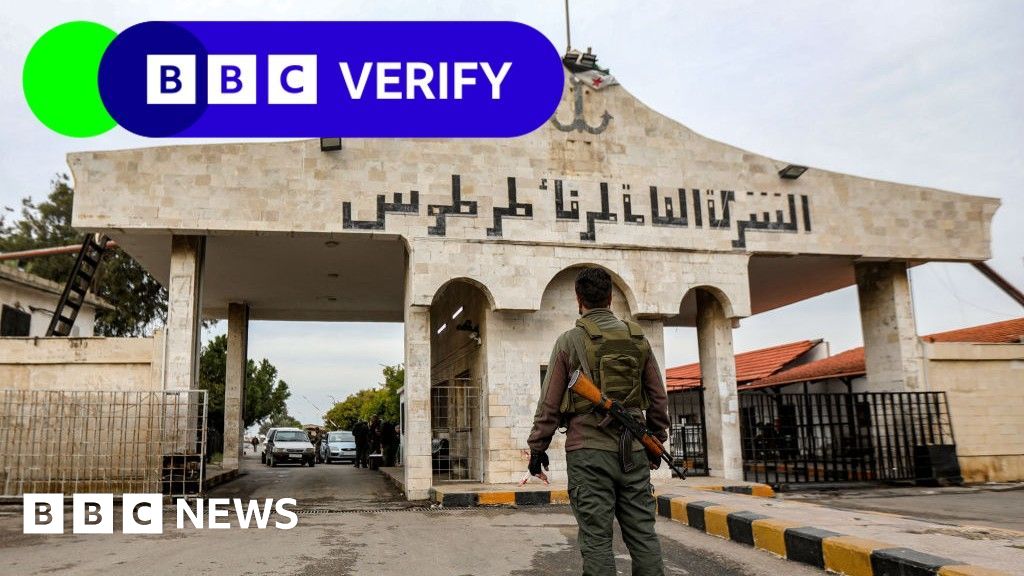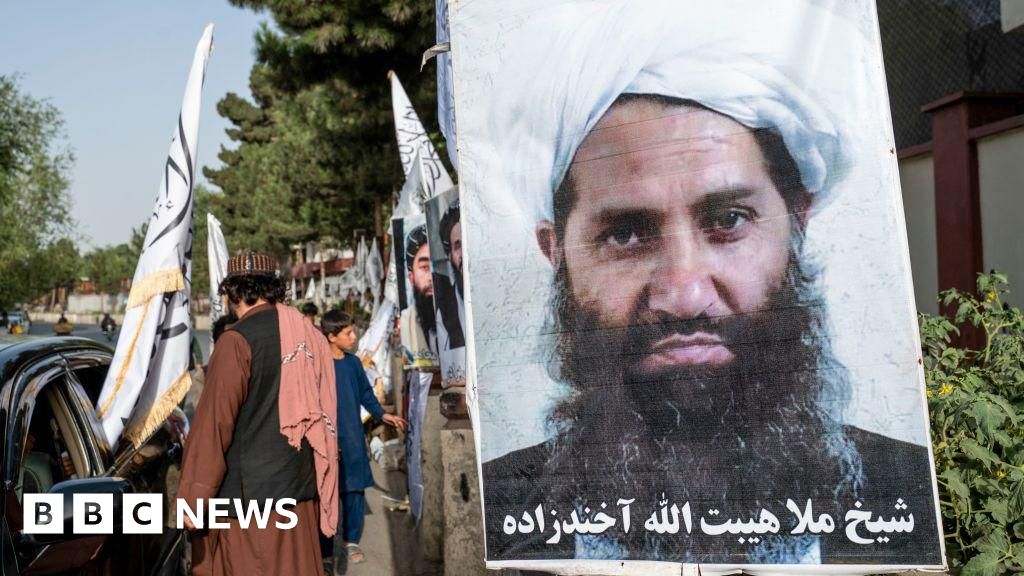ARTICLE AD BOX
By Matt Murphy
BBC News
 Image source, Getty Images
Image source, Getty Images
Mr Erdogan (L) met Mr Zelensky (C) and Mr Guterres (R) in the western Ukrainian city of Lviv
UN Secretary General António Guterres has said he is "gravely concerned" about fighting near the Zaporizhzhia nuclear plant in southern Ukraine.
He made the comments during a summit with Ukraine's President Volodymyr Zelensky and Turkish leader Recep Tayyip Erdogan in Lviv.
"Any potential damage to Zaporizhzhia is suicide," Mr Guterres warned.
The meeting was the first between the UN chief and Mr Zelensky since Russia launched its invasion in February.
Mr Erdogan echoed the UN chief's concerns, telling reporters that he was worried about the danger of "another Chernobyl" disaster erupting at the plant.
In recent weeks the area around the facility, which Russia seized in March, has come under heavy artillery fire, with both Kyiv and Moscow blaming each other for the attacks.
Ahead of Thursday's meeting Mr Zelensky criticised "deliberate" Russian attacks on the power plant.
Moscow is accused of turning the facility into an army base, with all three leaders urging the Russians to demilitarise the zone as soon as possible.
The appeals come as Ukrainian staff, who are working at the plant under Russian direction, warned of a potential nuclear catastrophe at the facility, saying in the past two weeks it has become "the target of continuous military attacks".
"What is happening is horrific and beyond common sense and morality," staff wrote in a Telegram post (in Ukrainian).
Later on Thursday, an official Twitter channel used by the Ukrainian government said that members of Rosatom, Russia's state nuclear corporation, had "urgently" left the facility, and an "unexpected day off" had been announced.
"Ukrainian intelligence officers believe that the Russians are preparing a provocation at the [facility]," Ukraine's Centre for Information security tweeted.
"Following their extensive shelling... [Russian forces] could 'raise the stakes' and stage a real terrorist attack on Europe's largest nuclear facility," it said.
The BBC has been unable to verify the claims.
Shortly before these tweets, Mr Zelensky warned that "the world is on a verge of nuclear disaster" and condemned what he called "Russia's irresponsible actions and nuclear blackmailing".
Despite the concern, the site is said to be far more secure than the Chernobyl plant - the site of the worst nuclear incident in history.
The reactor is in a steel-reinforced concrete building that can "withstand extreme external events, both natural and man-made, such as an aircraft crash or explosions," experts told the BBC in March.
Image source, Getty Images
Image caption,The Zaporizhzhia plant is the largest in Europe and has been under Russian control since March
There were reports ahead of the summit that Mr Erdogan would offer to arrange a summit between Mr Zelensky and Russian President Vladimir Putin.
The Turkish leader maintains a close working relationship with Mr Putin, and speaking to reporters after the meeting, Mr Erdogan said he believed the war would "come to the end at the negotiating table".
While Mr Zelensky welcomed the leader's visit and Turkey's "powerful message of support", he flatly rejected suggestions that it could be in a position to broker peace talks.
Mr Zelensky told reporters that he was "very surprised" to hear from Mr Erdogan that Moscow was "ready for some kind of peace".
"There is no trust towards the Russian Federation," Mr Zelensky said, saying that Russia must withdraw its troops, first and foremost.
The leaders were expected to discuss expanding the Turkey-UN sponsored grain deal between Russia and Ukraine - the only diplomatic breakthrough of the conflict so far.
On Thursday, Kyiv said a 25th cargo ship had left Ukraine under the deal which saw Russia agree to end its blockade of Black Sea ports.
Mr Guterres hailed the agreement and urged Russia and Ukraine to adopt the "spirit of compromise" that brought it about.
"From day one, the parties have worked professionally and in good faith to keep the food flowing," Mr Guterres said. "I appeal for this to continue and for them to overcome all obstacles in a spirit of compromise and permanently settle all difficulties."
Elsewhere, in eastern Ukraine Kharkiv Governor Oleh Synehubov said that 17 people had died after Russian shelling hit several residential buildings in the city.
And in Moscow, Russia's foreign ministry said that while a clash with the collective West is possible, a direct nuclear conflict with the US and Nato would not be in Russia's interests.
"Russian military doctrine allows a nuclear response only in response to aggression using weapons of mass destruction, or when the very existence of the state is threatened," Ivan Nechayev said.

 2 years ago
22
2 years ago
22








 English (US) ·
English (US) ·